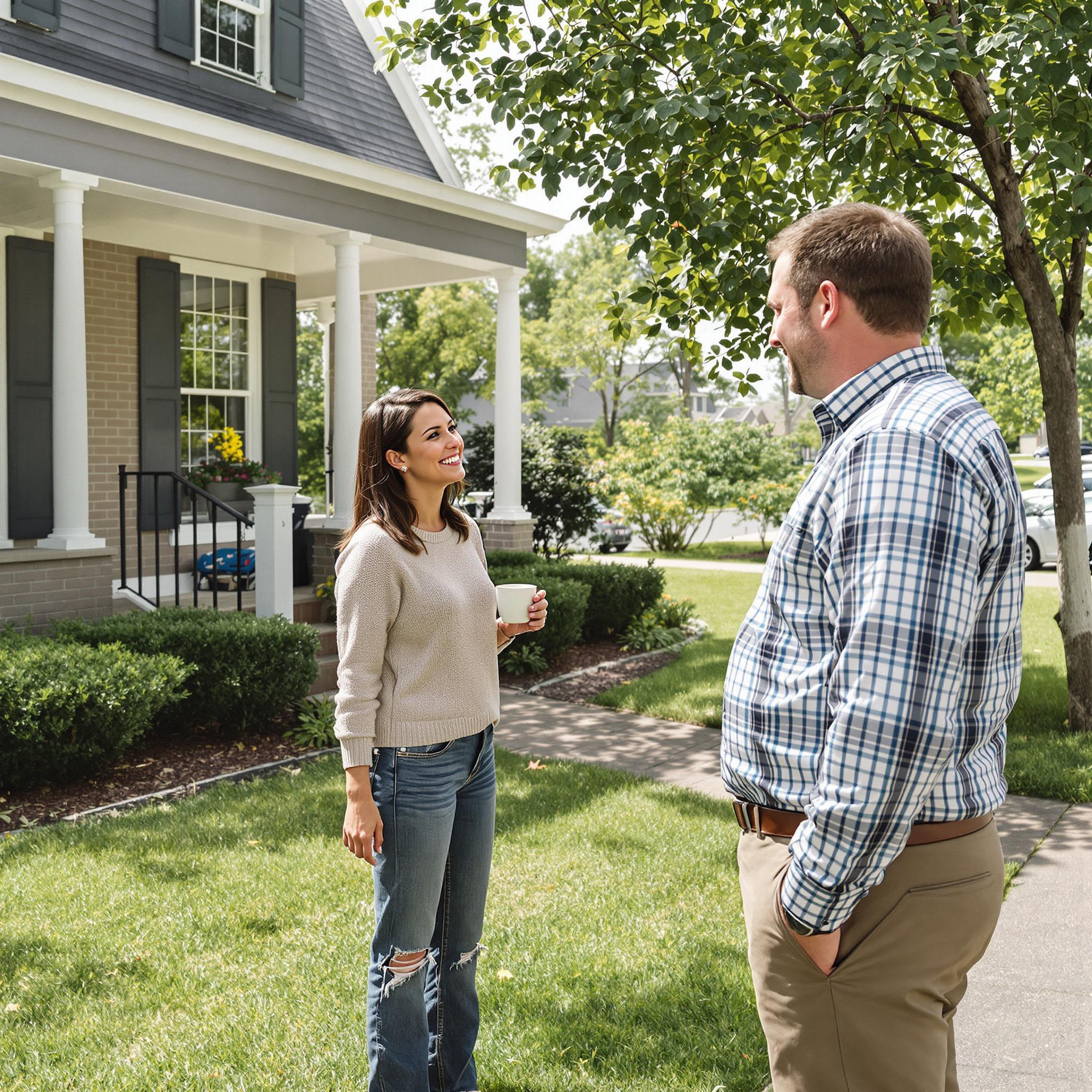Making Friends After Divorce
Divorce can feel like closing one book and staring at the blank pages of another. Where do you even begin? One of the toughest parts of this new chapter is figuring out how to rebuild your social life. Your old routines might no longer fit, and some friendships may have shifted. It’s a lot to process, isn’t it? But here’s the thing—you can make friends again, and it might be more rewarding than you expect.
Maybe you’re hoping to find people who truly understand what you’re going through or just someone to grab coffee with on a Saturday morning. Either way, know this: you’re not alone in feeling this way. Sure, meeting new people might feel strange at first—like trying on a pair of shoes that don’t quite fit yet. But with a little patience and some courage to step outside your comfort zone, you’ll find yourself building connections that feel just right.

Why Rebuilding Your Social Circle Matters
Divorce isn’t just the end of a marriage—it’s the start of a whole new chapter. And let’s be honest, that can feel like stepping into the unknown. But here’s the good news: it’s also a chance for growth and connection. One of the most important steps in moving forward is rebuilding your social circle. Why? Because friendships aren’t just nice to have—they’re absolutely vital.
For starters, having supportive friends can make a huge difference emotionally. After something as life-altering as a divorce, it’s natural to feel a bit adrift or even isolated. But reconnecting with others can help you find your footing again. Think about it—whether it’s catching up with someone over coffee or joining a book club, these small moments remind you that you’re not navigating this alone.
And then there’s your mental health to consider. Did you know that strong social connections can actually lower stress, boost your confidence, and help you feel happier overall? It’s true! Building a network of friends isn’t just about filling your calendar; it’s about creating a safety net for those tougher days.
And let’s face it—you deserve some fun, too. Divorce can feel heavy at times, but finding new friends adds those lighthearted moments we all need. Whether it’s laughing over shared interests or trying out a new hobby together, these connections can spark joy and excitement for what lies ahead.
[IMAGE 1: Placeholder – An image showing two friends laughing together at an outdoor café.]
Sure, rebuilding your social circle takes effort—and maybe even some courage—but every small step counts. In the process, you’re not just meeting new people; you’re rediscovering parts of yourself that may have been tucked away for too long.
Challenges of Making Friends Post-Divorce
Making friends after a divorce can feel like climbing a mountain without a map. It’s unfamiliar territory, and let’s face it—putting yourself out there can be daunting. Your world has likely shifted in ways you didn’t expect, and navigating social connections now might feel more complicated than ever. But here’s the good news: you’re not alone in this, and these challenges don’t have to hold you back.
Overcoming Loneliness and Isolation
Loneliness is often the first hurdle to tackle. After a divorce, it’s common to feel like your social circle has splintered. Maybe mutual friends don’t know how to balance their loyalties, or perhaps group gatherings now feel awkward when everyone else is paired up. It stings, doesn’t it? But remember, these feelings are temporary.
Start small. Say hello to that neighbor you always wave at but never chat with. Sign up for a local event or workshop where you can meet people in a relaxed setting. Tiny steps like these can help ease the loneliness and remind you that there are new connections waiting just around the corner.

Addressing Fear of Rejection
Here’s the thing—putting yourself out there after divorce is no walk in the park, especially when rejection looms large in the back of your mind. It’s scary, right? You might worry about whether someone will accept you or if you’re coming on too strong. These fears are natural, but they don’t define you.
Instead of focusing on potential rejection, try shifting your mindset. Look for low-stakes environments like hobby groups or volunteer activities where friendships can grow naturally. And if someone doesn’t click with you, no big deal—chalk it up as experience and move on. Not every connection is meant to stick, and that’s okay.
Navigating Shared Friendships or Social Shifts
Divorce has a way of shaking up your friendships, sometimes in ways you didn’t anticipate. Maybe certain friends pull away, unsure how to navigate their relationship with you now. Or maybe others step up in surprising ways, offering support when you need it most.
Focus your energy on those who truly have your back—the ones who make you feel seen and valued. And for connections that feel strained or one-sided? It’s okay to let them go. Think of it as clearing space for healthier relationships that align with this new chapter of your life. After all, building meaningful friendships starts with surrounding yourself with people who genuinely lift you up.
Practical Tips for Building Friendships
Making friends after divorce can feel daunting, almost like you’re starting from scratch. And honestly? That’s not far from the truth. But here’s the silver lining: you’ve gained life experience and clarity about who you are, which can help you build deeper, more meaningful relationships. Let’s dive into some simple, practical ways to get started.
Leverage Existing Networks
You don’t have to reinvent the wheel when it comes to making friends. Sometimes, the easiest connections are already around you. Have you considered reaching out to an old friend or reconnecting with a former colleague? Maybe there’s a neighbor you’ve always chatted with in passing but never really spent time getting to know. A quick text or casual coffee invite could be just the thing to reignite those connections.
And don’t underestimate the power of mutual friends or family members introducing you to someone new. It’s a lot less intimidating to meet people through someone you trust—and who knows? You might hit it off right away.
Join Clubs, Classes, or Volunteer Groups
Think about what lights you up—your passions, hobbies, or even something you’ve always wanted to try. Whether it’s joining a local hiking group, signing up for a pottery class, or attending a cooking workshop, these activities give you an easy way to meet people naturally. The best part? You’ll already have something in common, which makes starting conversations so much easier.
Volunteering is another great option. It feels good to give back, doesn’t it? Plus, it allows you to connect with people who share similar values and priorities.
[IMAGE 3 Placeholder]
Explore Friendship Apps and Online Platforms
Let’s face it—technology has changed everything, including how we make friends. Apps like Bumble BFF and Meetup make connecting with others in your area surprisingly easy. You can filter by interests and even find groups or events that fit your vibe. Sure, meeting someone new online might feel a bit awkward at first—but trust me, plenty of people are in the same boat. Most are just as eager as you are to form meaningful friendships.
Start Small: Socializing as an Introvert or Shy Person
If big social gatherings aren’t your thing, no problem! Starting small is perfectly fine—and often less overwhelming. Go for one-on-one meetups or smaller settings where you can focus on building genuine connections without feeling stretched thin. Remember that it’s not about having dozens of friends; even one meaningful friendship can make all the difference.
Take it one step at a time, and don’t rush yourself. Building friendships after divorce isn’t a race—it’s a journey. And hey, every great connection started somewhere, right? So go ahead and take that first step—you might be surprised where it leads!
Balancing Friendships with Life After Divorce
Life after divorce can feel like you’re constantly spinning plates. Between work, personal responsibilities, and co-parenting (if that’s part of your journey), finding time for friendships might seem like a luxury you just can’t afford. But here’s the truth: friendships are more than just “nice to have.” They’re essential for helping you heal, grow, and rediscover joy after a tough chapter in your life.
For parents juggling custody schedules, it’s even trickier. Ever feel like your calendar is running your life? Try starting small—maybe meet another parent for coffee while your kids are at practice or plan an outing where the kids can play, and you can catch up with friends. It doesn’t have to be perfect; it just needs to happen.
And if your schedule feels completely maxed out, remember: it’s not about how many friends you have but how meaningful those connections are. A few close friendships can do wonders for your sense of belonging and happiness. Be honest about what you can manage and don’t feel guilty if you need to set boundaries.
Most importantly, give yourself grace. It’s okay to say no sometimes. Balance doesn’t happen overnight—it’s all about small steps and figuring out what works best for you.
[IMAGE 4] Placement: Consider including an image of a parent enjoying coffee with a friend at an outdoor café while children play in the background.
How to Maintain Meaningful Connections
Building new friendships is one thing, but keeping them alive? That’s where the real magic—and effort—happens. True connections don’t just appear out of thin air; they need time, trust, and a little nurturing. Start small. A quick text to check in or grabbing coffee every now and then might seem simple, but it shows you care.
Here’s the thing: boundaries matter. It’s tempting to say “yes” to everything when you’re eager to grow your social circle, but overcommitting can leave you feeling stretched too thin. Be upfront about what works for you—your friends will appreciate the honesty, and it sets the tone for a healthy relationship.
And listen—really listen. People naturally warm to those who make them feel seen and heard. Take an interest in their stories, cheer them on when they succeed, and be present in the moment. Friendships thrive on those little gestures that say, “I’m here for you.”
[IMAGE 5]
Lastly, don’t feel bad if some connections fade over time. It’s normal! Focus on cultivating a few meaningful relationships rather than spreading yourself too thin with ones that don’t bring joy or growth into your life. You’ll find that quality always beats quantity in the long run.
FAQ Section
Have questions about making friends after divorce? Don’t worry—you’re definitely not the only one feeling this way. We’ll tackle some of the most common concerns, like how to ease into social situations if you’re shy, where to find local groups or activities, and how to juggle new friendships with co-parenting or a packed schedule. These answers are here to give you a little confidence boost and help you feel supported as you take steps toward building your social circle again.

Leave a Reply